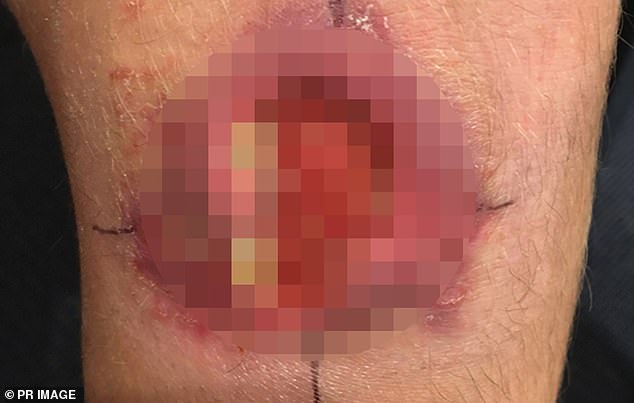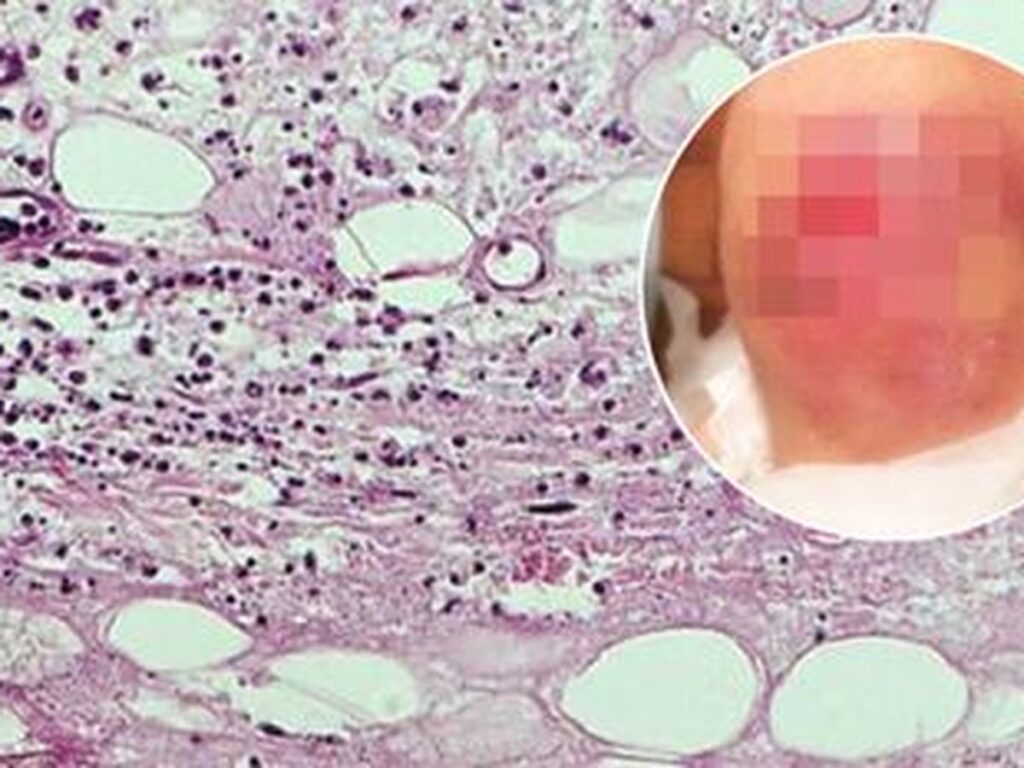If you’re planning a trip to the popular NSW South Coast tourist town of Batemans Bay, you might want to think twice.
A flesh-eating bacterial infection known as Buruli ulcer has taken root in the area, and experts are warning that it could spread to Sydney.
A New Hotspot for Buruli Ulcer
Two cases of Buruli ulcer have been confirmed in Batemans Bay, leading infectious diseases experts to label the town a “new endemic focus of human Buruli ulcer transmission.” The bacteria, Mycobacterium ulcerans, has been found to be genetically linked to a previous infection in Eden, 150km away. This means that the bacteria is now established in a local wildlife reservoir in the region.

How Do You Get Infected?
The two human cases reported in Batemans Bay are a stark reminder of how easily the bacteria can be contracted. A 94-year-old man wounded his hand on a folding table in 2020, while a 71-year-old was bitten by a mosquito in his lounge room in May 2023. The bacteria can be transmitted to humans through mosquitoes, which are believed to carry the bacteria that causes Buruli ulcers.
The Risks of Buruli Ulcer
So far this year, Victoria has reported 347 confirmed cases of Buruli ulcer, with outbreaks in Melbourne in 2021. The disease has been increasingly reported in urban areas of Victoria, after initially emerging in coastal areas. The risk of further spread along coastal NSW is significant, and experts are urging residents and tourists to take precautions.
What is Buruli Ulcer?
Buruli ulcer is a bacterial infection that eats away at the skin and underlying soft tissue. The bacteria releases a toxin that causes the infection, which can take four to five months to develop. The primary target of the bacteria is believed to be possums, but as a zoonotic disease, it can be transmitted to humans through mosquitoes.
Symptoms of Buruli Ulcer
The symptoms of Buruli ulcer are easy to miss, which makes it even more dangerous. It starts with a non-healing sore, usually on the leg or arm, that lasts for weeks. Over time, the sore gradually enlarges, and once the wound breaks down, a large, open ulcer is left behind. The infection is not very painful, as it interferes with pain signals and the immune system, making it difficult for the body to fight or detect it early.
What to Do If You’re Infected
If you suspect you have Buruli ulcer, simply see a GP. The infection can now be effectively treated with antibiotics and dressings.
How to Lower the Risk
To reduce the risk of getting infected, residents are advised to:
- Wear shoes, long sleeves, and trousers to reduce mosquito bites
- Apply repellent to exposed skin
- Wash and cover any wounds sustained while working, playing, or gardening outdoors
By taking these precautions, you can minimize the risk of getting infected with this flesh-eating bacteria. Stay safe, and stay informed!

